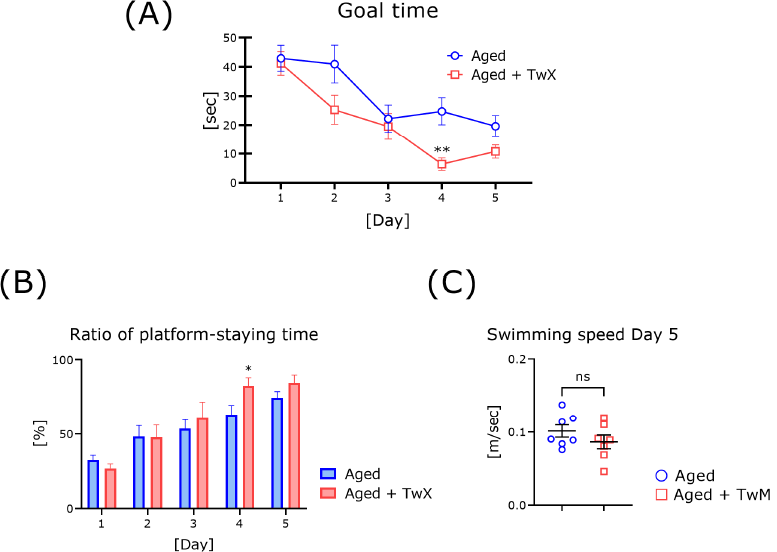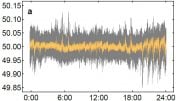
Antioxidant supplements can mitigate age-related cognitive and muscle decline, as shown in studies with aged mice, leading to potential improvements in human health, although further research is needed for validation.
Scientists find that mice administered with blended antioxidant supplement showed significant improvements in spatial cognition, short-term memory, and muscle durability.
Age-related decline in cognitive and muscle function continues to be a significant challenge for the field of healthcare. Healthcare costs associated with treating age-related cognitive decline and muscle weakness are expected to increase substantially in the future. One of the primary underlying mechanisms responsible for age-related health decline is oxidative stress, which refers to the progressive damage inflicted by oxygen-free radicals on cells.
The Role of Antioxidants
Certain compounds in foods, known as antioxidants, are capable of neutralizing oxygen-free radicals. Consuming antioxidant-rich foods is known to reduce cell damage and slow down age-related health decline. In the absence of an antioxidant-rich diet, people often turn to antioxidant supplements that offer comparable or greater health protection.
Now, a team of scientists, led by Professor Koji Fukui affiliated with the Shibaura Institute of Technology (SIT) and including Dr. Fukka You from Gifu University found that administering a blended mix of antioxidant supplements to aged mice significantly improves their spatial cognition, short-term memory, and muscle durability. The paper was published in the Special Issue ‘Antioxidants in health and diseases’ of the International Journal of Molecular Sciences.

Administration of Twendee X (TwX) improves spatial learning ability in aged mice. The average goal time (escape latency) in the spatial cognition test is shown in (A). The percentage of time spent in the quadrant is shown in (B). The average swimming speed on Day 5 of the experiment is shown in (C). Credit: Koji Fukui from SIT, Japan
Research Findings and Implications
“In this study, significant improvements were observed in the spatial learning ability and short-term memory in supplement-treated aged mice. Long-term intake of blended antioxidant supplements may be effective, even considering the effects of aging and related increased oxidation in the body,” explains Prof. Fukui, the lead researcher of the study. Memory loss is associated with several debilitating diseases, such as Alzheimer’s, which disproportionately affect older people. The discovery that blended antioxidant supplements improve memory in mice suggests that they may also be beneficial in preventing memory loss in humans.
Sarcopenia, another age-related disease, results in a progressive loss of muscle strength in older individuals. This condition significantly affects people’s mobility, often leading to social isolation. Moreover, sarcopenia can increase the risk of developing cognitive disorders. If blended antioxidant supplements can enhance muscle strength in mice, they may also hold the potential for mitigating muscle frailty and sarcopenia in humans.
“Frailty and sarcopenia are now serious problems and potent risk factors for dementia. Although the mechanism is unknown, it is groundbreaking that taking supplements may be able to prevent muscle weakness,” notes Prof. Fukui.
Challenges in Antioxidant Supplement Use
Numerous types of antioxidant supplements are available in the market, and determining the right supplements to buy can often be challenging for consumers. The results of this groundbreaking study by Professor Fukui and his colleagues support the use of blended antioxidant supplements to prevent age-related health decline. However, further research is necessary to establish the efficacy and safety of blended antioxidant supplements in humans. Moreover, specific antioxidant blends may have varying effects on the human body, and their use should be ideally based on clinical evidence. The antioxidant blend used in the study was Twendee X, which has a similar composition to the commercially available supplement Oxycut®.
“Although many types of antioxidant supplements are available, the effect is greater if multiple types are taken simultaneously rather than one type. However, it is difficult to know which type and how much to take, as it is possible to take too many of some vitamins,” Prof. Fukui observes. “We recommend only taking multivitamins that are guaranteed to be safe,” he cautions.
Future Directions in Antioxidant Research
Besides choosing the right antioxidant supplement, adopting the right regimen can also confuse consumers. Future research on the individual differences in the effects of antioxidants can reduce confusion around the optimum dose and composition of antioxidant supplements. Over the long term, optimal use of antioxidant supplements may significantly reduce age-related health decline. “In the future, there will come a time when we will provide multi-supplements tailored to each individual. There will be no need to worry about overdosing,” concludes Prof. Fukui.
Reference: “A Blended Vitamin Supplement Improves Spatial Cognitive and Short-Term Memory in Aged Mice” by Koji Fukui, Fukka You, Yugo Kato, Shuya Yuzawa, Ayuta Kishimoto, Takuma Hara, Yuki Kanome, Yoshiaki Harakawa and Toshikazu Yoshikawa, 27 February 2024, International Journal of Molecular Sciences.
DOI: 10.3390/ijms25052804









Be the first to comment on "Turning Back the Biological Clock With Antioxidant Supplements"